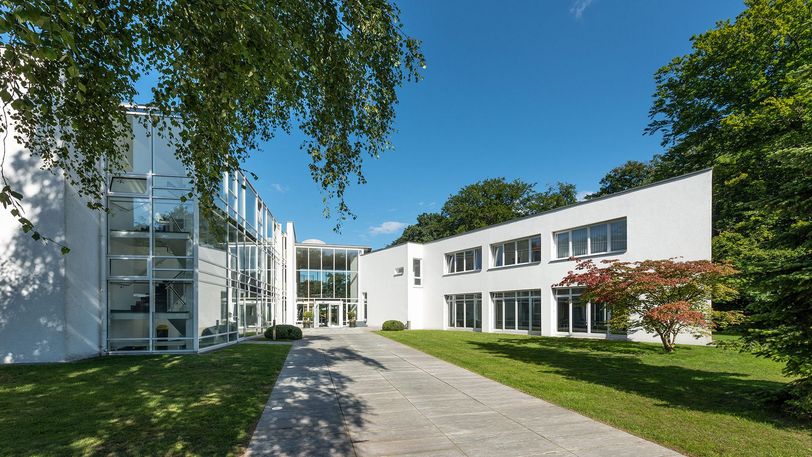The Hanse-Wissenschaftskolleg (HWK) is a science foundation inaugurated by the states of Bremen and Lower Saxony and the city of Delmenhorst. As an independent "Institute for Advanced Study", it has been inviting around 50 recognized scientists, authors and artists as guests (fellows) to Delmenhorst every year since 1997, thus promoting excellent science in northwestern Germany.
The Hanse-Wissenschaftskolleg allows researchers to concentrate on their projects free of academic obligations and promotes stimulating dialogue between disciplines by offering opportunities for cooperation and personal encounter. Fellows also benefit from close cooperation with the universities in Bremen and Oldenburg and leading research institutions in the Northwest region, as well as a global alumni network. In this way, the Hanse-Wissenschaftskolleg also promotes the internationalization of regional science and its clusters of excellence. Individual support for the fellows, an intercultural and interdisciplinary working environment, and extensive networking with regional scientific institutions make up the special profile of the Hanse-Wissenschaftskolleg.
The Hanse-Wissenschaftskolleg pursues four discipline-independent funding priorities in the natural sciences, humanities and social sciences: BRAIN & MIND, EARTH, TECHNOLOGY & SCIENCE, SOCIETY. The fifth focus, ARTS & LITERATURE, supports the interdisciplinary collaboration of the fellows and the examination of fundamental, overarching questions about the creation and transmission of knowledge in society. The presence of artists in residence and their close working relationships with cultural institutions in the region create points of contact for a self-critical encounter of the sciences and the arts.
With up to 60 international academic events and a series of public evening lectures per year, the Hanse-Wissenschaftskolleg also serves experts and laypersons alike as a place for sophisticated intellectual debate on scientific and social issues.


